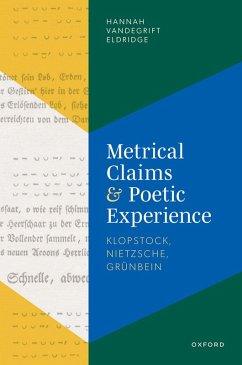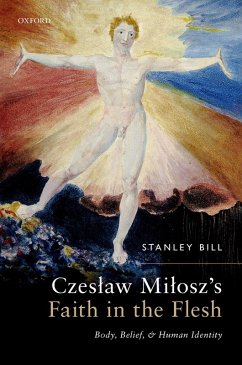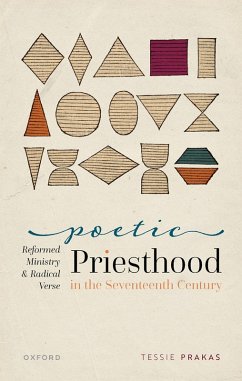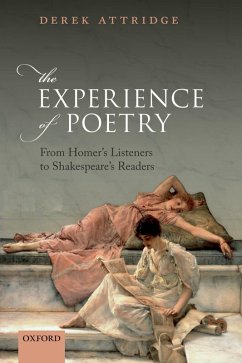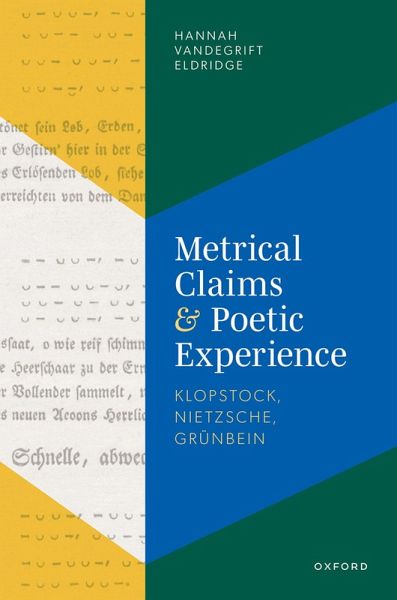
Metrical Claims and Poetic Experience (eBook, PDF)
Klopstock, Nietzsche, Grünbein
Versandkostenfrei!
Sofort per Download lieferbar
38,95 €
inkl. MwSt.
Weitere Ausgaben:

PAYBACK Punkte
19 °P sammeln!
This volume contributes to the fields of lyric poetry and poetics (especially poetic form), aesthetics, and German literature by intervening in debates on the social functions, cognitive and emotional effects, and the value of poetry. It builds on, and moves beyond, previous theories of rhythm to tie meter more particularly to the specificities of poetic language in blending of embodied responses, cultural situations, and linguistic particularities. The book examines the German-language tradition across three centuries, arguing that the interdisciplinarity and richness of metrical theory and p...
This volume contributes to the fields of lyric poetry and poetics (especially poetic form), aesthetics, and German literature by intervening in debates on the social functions, cognitive and emotional effects, and the value of poetry. It builds on, and moves beyond, previous theories of rhythm to tie meter more particularly to the specificities of poetic language in blending of embodied responses, cultural situations, and linguistic particularities. The book examines the German-language tradition across three centuries, arguing that the interdisciplinarity and richness of metrical theory and practice emerge in the heterogeneity of poetry and its defenders in their specific historical moments. Focusing on Friedrich Gottlieb Klopstock, Friedrich Nietzsche, and Durs Grünbein, the book contextualizes each in the metrical and aesthetic debates of his epoch, showing how questions of meter are linked with overarching poetic goals such as the relationship between form and meaning, the adaptation of the Classical past for German literature, and the ways poetry's sounds work in the body. It argues that Klopstock's, Nietzsche's, and Grünbein's metrical theory and practice offer valuable insights for thinking about the ways poetry works and why it matters.
Dieser Download kann aus rechtlichen Gründen nur mit Rechnungsadresse in A, B, BG, CY, CZ, D, DK, EW, E, FIN, F, GR, HR, H, IRL, I, LT, L, LR, M, NL, PL, P, R, S, SLO, SK ausgeliefert werden.




